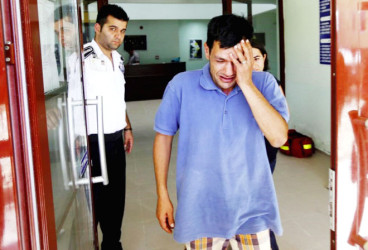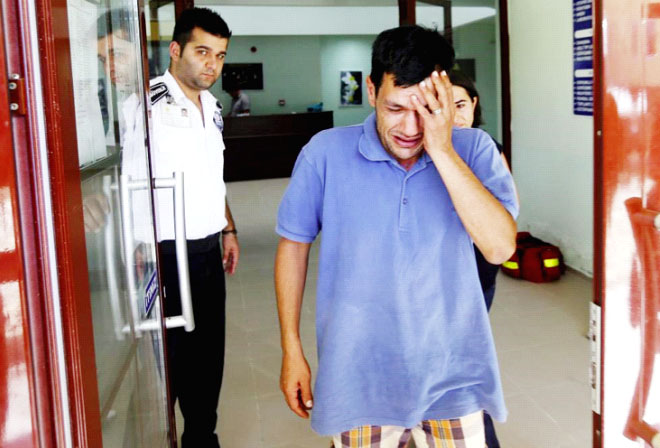BICSKE, Hungary/MUGLA, Turkey (Reuters) – Migrants forced from a train in Hungary scuffled with helmeted riot police and some clung to railway tracks yesterday, as politicians across Europe struggled to respond to public opinion appalled by images of a drowned 3-year-old boy.
France and Germany said European countries must be required to accept their shares of refugees, proposing what would potentially be the biggest change to the continent’s asylum rules since World War Two.
Europe’s worst refugee crisis since the Yugoslav wars of the 1990s has strained the European Union’s asylum system to breaking point, dividing its 28 nations and feeding the rise of right-wing populists.
Hundreds of thousands of refugees from wars in the Middle East, along with economic migrants fleeing poverty in Africa and Asia, have braved the Mediterranean Sea and land routes across the Balkans to reach the European Union. Thousands have died at sea and scores have perished on land.
Nearly all first reach the EU’s southern and eastern edges before pressing on for richer and more generous countries further north and west, above all Germany, which has emphasised its moral duty to accept those fleeing genuine peril.

Accusing some European countries of failing to “assume their moral burdens”, French President Francois Hollande said he had agreed with German Chancellor Angela Merkel on “a permanent and obligatory mechanism” to allocate refugees across the bloc.
“I believe that today what exists is no longer enough,” he said. “So we will need to go further.”
Merkel said Germany was prepared to accept more refugees per capita than its neighbours, but others must do their part with “quotas and rules that are fair and take into account what is possible in each country”.
She also acknowledged that laws requiring refugees to apply for asylum in the first EU country where they arrive were “not working any more”. Germany has caused confusion among its neighbours by announcing it will accept applications from Syrians regardless of where they enter the EU.
Politicians across the continent acknowledged the impact yesterday of images of a 3-year-old boy in a red T-shirt and tiny sneakers face down in the surf of a Turkish beach, which gave a haunting human face to the tragedy of thousands dead at sea.
“He had a name: Aylan Kurdi. Urgent action required – A Europe-wide mobilisation is urgent,” French Prime Minister Manuel Valls said on Twitter.
The boy’s 5-year-old brother Galip and 35-year-old mother Rehan were also among 12 people who died when two boats carrying 23 capsized while trying to reach a Greek island.
LET THIS BE THE LAST”
His father Abdullah Kurdi, who was rescued barely conscious, collapsed in tears after emerging from a morgue where the bodies were held.
“The things that happened to us here, in the country where we took refuge to escape war in our homeland, we want the whole world to see this,” Abdullah told reporters.
“We want the world’s attention on us, so that they can prevent the same from happening to others. Let this be the last,” he said.
Hungary has emerged as the primary entry point for those reaching the EU overland across the Balkans, and its right-wing government has become one of the most vocal on the continent opposing large-scale immigration.
Yesterday brought a days-long stand-off to a pitch as Hungarian authorities who refused to let migrants board trains for Germany for days finally allowed hundreds onto a train bound for the Austrian frontier – only to halt it at Bicske, a town outside Budapest with an immigration registration centre.
Hundreds of exhausted people had crammed aboard, clinging to doors and squeezing their children through open carriage windows. When the train was halted, most refused to get off.
Police cleared one carriage, while five more stood at the station in the heat. Fearing detention, some migrants banged on windows chanting “No camp! No camp!”
One group pushed back dozens of riot police guarding a stairwell to fight their way back on board. One family – a man, his wife and their toddler – made their way along the track next to the train and lay down in protest. It took a dozen riot police wrestling with the man to get them up again.

